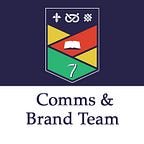Search engine optimisation of the Keele website
This month we’ve performed a search engine optimisation (SEO) audit of the Keele University website.
By Paul Newton, Head of Digital
Search engines are the most popular way to find information, and this is especially true with educational institutions. Almost half of the traffic on the Keele website originates from search.
With that in mind, an organic search strategy is essential to increasing the number of visitors on the website through achieving high-ranking search results placements and increasing click-throughs.
To audit the site’s current search engine performance, we used a selection of tools including Google Search Console, ScreamingFrog, SEObility and SiteChecker, as well as Google Chrome plugin Website SEO Checker, and SEOquake. We also followed the Google Webmaster Guidance closely.
From our audit, here are some of the action points that we are now working through:
Meta titles and descriptions
We have updated our guidance for our 200 CMS editors around meta titles and descriptions. The audit found examples of duplicate page titles, which can mean that it’s difficult for users to pick out which search result is relevant to them. Here’s an example:
We have therefore produced an Excel sheet of every meta title and description on the website, and have emailed all CMS users with a request for them to review and update these.
The undergraduate course pages for 2022 entry, including meta titles and descriptions, are also being reviewed and updated this month, in addition to other key pages.
Optimising content
We are prioritising the optimisation of content on our main pages, making sure keywords are appearing in the pages title or H1, occasionally in the body text, and in the pages’ meta title and description as mentioned above. Keywords are crucial to getting our pages to rank well.
The rule of thumb is easy to remember — if the words aren’t on a page, the page isn’t going to get found for those words.
Read more about this in our website style guide.
Submit a site map
Due to previous CMS limitations, we haven’t been able to submit a full site map to Google Search Console and have relied on Google Crawls instead. However, as the vast majority of content on the website is now on our new templates, we can now submit a sitemap. We will also submit a bespoke sitemap just for news pages.
We also plan to introduce more structured data to the website, with the aim of improving search engine rankings for news and student recruitment pages.
Internal and external linking
Our mobile menu is unique in that it allows a user to browse from any page of the website to another (i.e. we output a full site map). This is fantastic for the user, but might confuse Google when picking out important internal links.
To test whether we can make internal links appear more relevant to Google, we will add a “nofollow” tag to the mobile menu, plus some other changes.
Test and improve our page speed
Page speed affects both search engine rank factor and bounce rate, due to modern expectations of load speeds. Google has indicated site speed is one of the signals used by its algorithm to rank pages.
In addition, a slow page speed means that search engines can crawl fewer pages using their allocated crawl budget, and this could affect indexation.
We’re working on speeding up the website further.
404 reports
88% of people who see our 404 page (“page not found”) go on to leave the website. It’s therefore essential that all broken links are fixed as soon as possible.
We run weekly reports within the Strategic Comms and Brand team and fix as many as we can ourselves, or redirect them to other relevant pages, but it’s important that CMS editors pay special attention when moving or retiring pages in order to avoid broken links appearing on the website — please do contact us if you need support.
We also produce a monthly report for all CMS editors to review and fix broken links on their pages.
